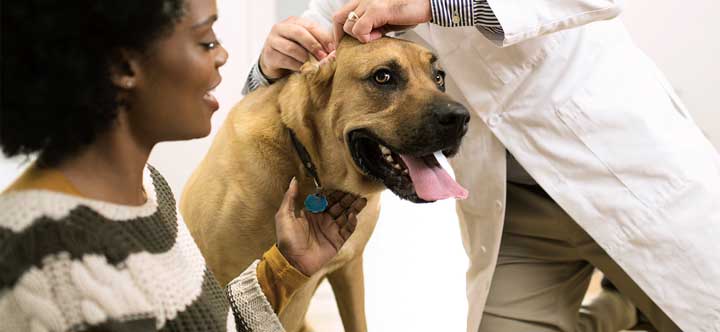Health
Is Your Dog Lactose Intolerant?
Just like humans, some dogs suffer from lactose intolerance, a condition in which their digestive system reacts negatively to ingesting lactose, which is present in a variety of dairy products. Many dog owners tend to give dogs milk well into their adulthood, not recognising that a dog may be displaying symptoms of lactose intolerance.
This ignorance could lead to a lower day to day quality of life for your dog. Before we get into exploring common symptoms of lactose intolerance, however, here’s a little background:
Lactose Intolerance (Versus Dairy Allergies)
Lactose intolerance is when a body (be it a dog’s or human’s) is unable to easily digest lactose, which is a natural sugar found in milk or dairy products. Because of this, when foods high in lactose are consumed, the body’s digestive system tends to react negatively with a variety of symptoms.

Very often, lactose intolerance is confused with dairy allergies; a condition which affects the immune system and possibly numerous organs in the body, which can make it more severe and life threatening than intolerance.
Symptoms of Lactose Intolerance
Although not fatal, in comparison to allergies, having lactose intolerance can lead to immense discomfort for your dog. Common symptoms include abdominal pain, bloating, nausea, vomiting and diarrhoea; all responses to your dog’s gastrointestinal system being unable to process lactose.

Additionally, a dog with intolerance may begin drinking large amounts of water after having certain dairy products as both vomiting and diarrhoea cause dehydration.
What To Avoid?
If you’ve noticed your dog suffering from these symptoms after drinking milk or eating yogurt, perhaps it’s wise to cut out all dairy together. However, if you still want to treat your dog with dairy once in a while (most love the taste of it), skip over pure milk and give your dog a little cheese instead.

Whole milk contains 11 grams of lactose per cup, while cheeses such as cottage cheese, American cheese and cheddar cheese contain little or no lactose (3 grams per half a cup, 1 gram an ounce and 0 grams an ounce respectively)
Additionally, if you feed your dog a store bought diet, be sure to check the labels of processed foods for lactose content.
Following these simple dietary guidelines will ensure your dog is healthier and happier and also that you have less of a mess to clean up!




















